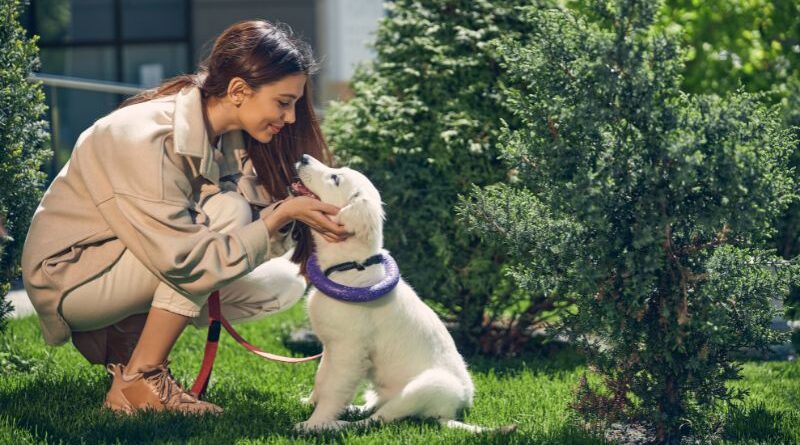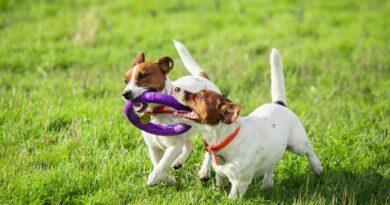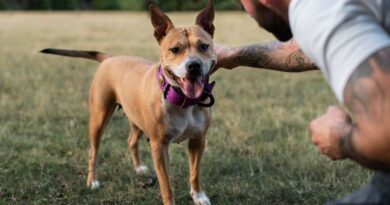Tips for Being a Responsible Pet Parent – Welcoming a furry friend into your home is a joyous occasion, but it comes with the crucial responsibility of being a caring and conscientious pet parent. Responsible pet ownership goes beyond the basics of food and shelter; it entails a commitment to your pet’s well-being, health, and happiness.
This guide provides essential tips for navigating the multifaceted role of a responsible pet parent, from the initial stages of selecting the right pet to ensuring their lifelong care.
By understanding the diverse needs of your pet and integrating responsible practices into your routine, you can forge a strong, loving bond that lasts a lifetime. Join us on this journey towards becoming a dedicated and compassionate steward for your four-legged family member.
Importance of responsible pet ownership
Responsible pet ownership is paramount for several compelling reasons. Firstly, it ensures the well-being of the animals themselves. Pets rely entirely on their owners for food, shelter, health care, and companionship. When individuals embrace the responsibilities of pet ownership, they contribute to the overall welfare of their animals, promoting physical health, emotional stability, and a sense of security.
Beyond the immediate benefits to the pets, responsible ownership also fosters safer communities. Properly cared-for animals are less likely to exhibit aggressive or nuisance behaviors, reducing the risk of incidents and conflicts. Additionally, responsible pet ownership helps address the issue of pet overpopulation by encouraging spaying and neutering and discouraging irresponsible breeding practices.
Also, Read – The Top 7 Green Parrots for Pet Owners
Tips for Being a Responsible Pet Parent
Regular Veterinary Care
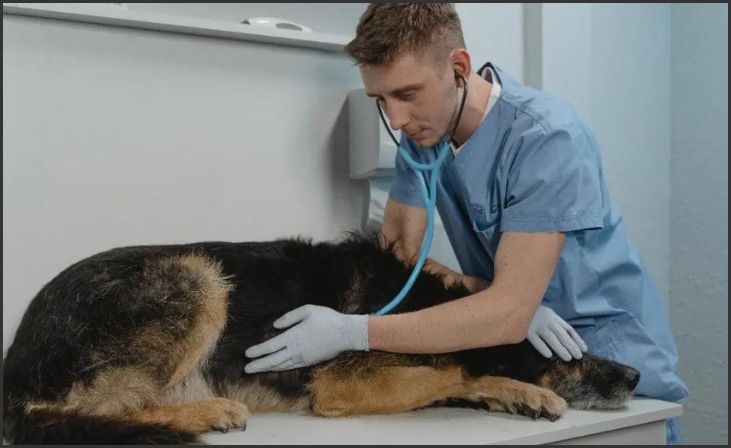
Ensure your pet’s well-being with regular veterinary check-ups. Schedule routine visits for vaccinations, preventive care, and overall health assessments. Regular veterinary care is essential for early detection of potential issues and ensures your pet receives appropriate medical attention throughout their life. This proactive approach helps maintain their health and longevity.
Balanced Diet
Provide your pet with a balanced and nutritious diet tailored to their specific needs. Consult your veterinarian to determine the right food based on their age, size, and health requirements. Ensure a mix of proteins, fats, carbohydrates, vitamins, and minerals for overall well-being.
Avoid overfeeding, as obesity can lead to various health issues. Regularly assess your pet’s dietary needs, adjusting portions as they age or if health conditions change. A balanced diet supports your pet’s energy levels, immune system, and overall vitality, contributing to a longer, healthier life.
Adequate Exercise
Prioritize your pet’s health by providing adequate exercise. Tailor activities to their breed, age, and energy level. Regular walks, playtime, and interactive toys keep them physically fit and mentally stimulated. Engage in activities that match their natural instincts, promoting a balanced lifestyle. Exercise helps prevent obesity, enhances cardiovascular health, and reduces behavioral issues.
Make it a daily routine to ensure your pet remains active and happy. Pay attention to cues—some pets may need more exercise than others. Whether it’s a game of fetch, a stroll in the park, or indoor play, consistent physical activity contributes to your pet’s overall well-being.
Proper Identification
Ensure your pet’s safety with proper identification. Fit them with a secure collar displaying an up-to-date ID tag containing your contact information. Additionally, consider microchipping, providing a permanent form of identification linked to your details.
This significantly increases the likelihood of a swift reunion if your pet gets lost. Keep the information on tags and microchips current, updating them if you move or change phone numbers.
These simple yet crucial steps offer peace of mind, helping others identify and return your beloved pet in case of separation. Proper identification is a fundamental aspect of responsible pet ownership, prioritizing their welfare.
Spaying/Neutering
Opt for responsible pet ownership by spaying or neutering your pet. This procedure offers numerous benefits, including controlling the pet population and preventing unwanted behaviors. Spaying (for females) reduces the risk of certain cancers and eliminates the heat cycle, while neutering (for males) curbs aggression and diminishes the likelihood of roaming.
The process can also contribute to a longer, healthier life for your pet. Consult your veterinarian to determine the optimal timing for the procedure based on your pet’s breed and age. By choosing spaying or neutering, you actively participate in promoting the well-being of your pet and the broader community.
Also, Read – Nutrient-Rich Vegetables Your Beloved Pets Will Adore
Safe and Comfortable Environment

Create a safe haven for your pet by ensuring their environment is secure and comfortable. Remove potential hazards, secure toxic substances, and provide a cozy space for rest. Consider your pet’s size, breed, and preferences when arranging their living space.
Maintain a suitable temperature, shield them from extreme weather, and offer shelter as needed. Adequate space to move around, appropriate bedding, and stimulating toys contribute to their well-being. Regularly inspect and pet-proof your home, inside and outside, to prevent accidents. A secure and comfortable environment promotes a sense of security for your pet, fostering a happy and healthy life.
Socialization and Training
Prioritize your pet’s well-rounded development through socialization and training. Introduce them to various environments, people, and animals from an early age to build confidence and positive behavior.
Basic training commands like sit, stay, and recall enhance communication and strengthen the bond between you and your pet. Consistent, positive reinforcement methods encourage good behavior.
Socialization and training reduce the risk of behavioral issues and help your pet become a well-adjusted companion. Enroll in puppy classes or seek professional guidance to ensure effective training. Investing time in these crucial aspects enhances your pet’s social skills and enriches their overall quality of life.
Regular Grooming
Prioritize your pet’s well-being with regular grooming. Brush their coat to prevent matting and reduce shedding, promoting a healthy skin and coat. Trim nails to prevent discomfort and potential injuries.
Clean ears and teeth regularly to ward off infections and dental issues. Bathing, as needed, helps maintain hygiene. Pay attention to your pet’s specific grooming needs based on their breed and individual characteristics.
Regular grooming sessions offer not just physical care but also strengthen the bond between you and your pet. If unsure, consult your veterinarian or a professional groomer for guidance on the appropriate grooming routine for your furry friend.
Quality Time and Attention
Dedicate quality time and attention to nurture a strong bond with your pet. Engage in interactive play, daily walks, or simply cuddle together. Understand their preferences and create moments of joy and companionship.
Actively listen to your pet’s cues for affection or playfulness. Quality time fosters a sense of security and happiness for your pet, addressing their emotional needs. Be present during feeding, grooming, and bedtime rituals.
This undivided attention not only enhances their overall well-being but also strengthens the unique connection you share. Your time and affectionate interactions are invaluable contributions to a fulfilling and loving relationship with your pet.
Emergency Preparedness
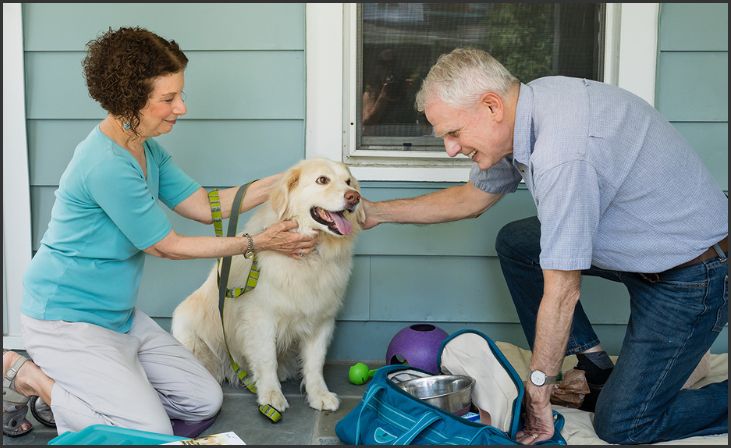
Prepare for emergencies to safeguard your pet’s well-being. Know the location of the nearest veterinary clinic and have a list of emergency contacts readily available. Create a pet first aid kit with essential supplies, including bandages, antiseptic wipes, and any necessary medications.
Keep important documents, such as medical records and identification, in a waterproof container. Familiarize yourself with common pet emergency procedures and signs of distress.
Have a plan for evacuation if necessary, including arrangements for temporary housing if you can’t stay at home. Being proactive and informed ensures a quick and effective response in times of crisis, prioritizing your pet’s safety and health.
Conclusion
In conclusion, responsible pet ownership is an ethical commitment that extends beyond the confines of our homes. By prioritizing the well-being of our furry companions, we create healthier, happier animals, safer communities, and a more sustainable environment.
The bond between responsible pet parents and their animals is one of mutual love and respect, and by fulfilling our obligations, we contribute to a world where all pets can thrive. Let our collective dedication inspire a future where every wag of a tail or purr is a testament to the enduring power of responsible and compassionate pet ownership.
FAQs
Research different breeds or species to find one that matches your lifestyle and living situation. Consider factors such as size, activity level, and grooming requirements. Adoption agencies and breeders can also provide guidance.
A pet emergency kit should include essential items such as first aid supplies, medications, medical records, a leash, food, water, and comfort items. Be sure to have contact information for your veterinarian and local emergency pet services.
Regular veterinary visits are crucial. Puppies and kittens may need more frequent check-ups, while adult pets should have an annual exam. Stay up-to-date on vaccinations, preventive treatments, and dental care.

